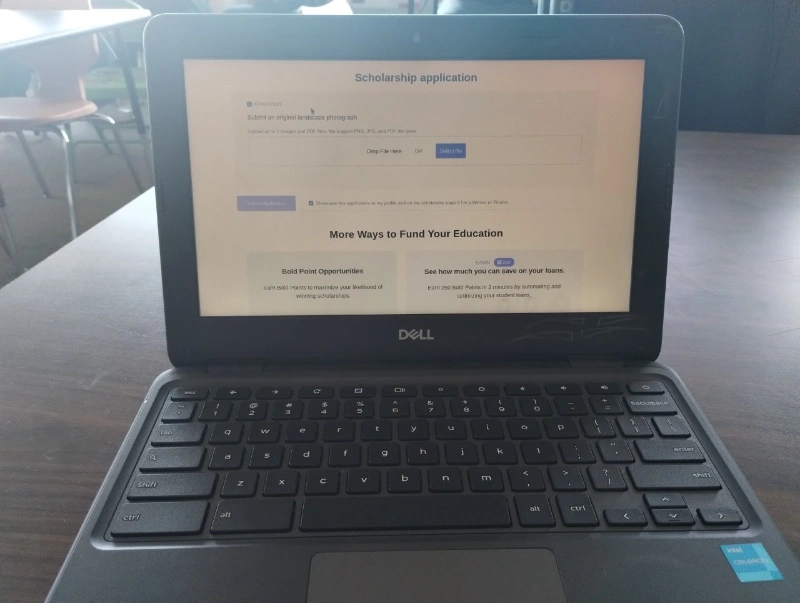Does Withdrawing from a Class Affect GPA?


If there is one thing I wish someone told me before I started my undergrad, it’s that, believe it or not, time management and balance are the keys to true academic success.
Between a part-time job, my personal life, and a full-time course load, I underestimated my lack of time and tight schedule and eventually fell behind in one of my classes. Once I realized I wasn’t going to be able to get ahead of the damage that was done, I had to withdraw from the course. I did my best to fight against it, but when you don’t know better, you can’t do better. And I want to make sure you do much better than I did!
Today’s article is about withdrawing from college courses, what it means, and how it affects you. I will discuss how a withdrawal reflects on your transcript and more. I will also leave you with some tips that can (hopefully) help you avoid withdrawing from a college class. The last thing I want is to leave anyone uninformed right before the semester begins. Let’s get into it!
If you need more time to finish college, consider applying for scholarships. Make a free profile with Bold.org today and start applying for scholarships!
Get Matched to Thousands of Scholarships
Create your Bold.org profile to access thousands of exclusive scholarships, available only on Bold.org.
Create Free ProfileWithdrawing 101
Withdrawing from a college class means dropping the course after the add/drop period, which marks a 'W' (withdrawal) on your transcript instead of a standard letter grade (i.e., A, B, C, D, F). Choosing to withdraw can be tough for many reasons, including personal issues outside your control, academic struggles like course overload or difficulty, or scheduling conflicts between your personal and school schedules.
Luckily, a ‘W’ won’t directly affect your GPA; that is, it won’t count as an ‘F’ and drop your GPA drastically. However, it can have consequences in other areas, such as academic standing, financial aid, and even prolonging graduation.
Note: It's important to consider the implications withdrawing can have on your future and explore helpful alternatives like tutoring, adjusting your workload, or weighing your options to stay or withdraw from the class with your professor before deciding to withdraw from a class.

'W' vs. 'NP'
When it comes to academic concerns, withdrawing from a course is a more common way to avoid hurting your GPA, however, students also have the option to ‘No Pass’ (NP) the course.
While a ‘W’ means a class is withdrawn after the drop/add period, ‘NP’ means the college student chose to take the class on a pass/fail basis and chose not to pass it. It sounds negative, but, like a ‘W’ grade, an ‘NP’ does not count towards the GPA, and no credits were earned for the course.
However, keep in mind not all schools offer the ‘NP’ grade, so be sure to check all of your institution’s registration guidelines to be sure.
Create Your Free Profile to Apply for Scholarships Today!How a 'W' Looks on Your Transcript
Though it's easy to worry about how a 'W' can look on your transcript, in truth, we don't know if it's "good" or "bad." Of course, it isn't ideal to withdraw from a class and have it reflect on your transcript, but with very little information on what it truly means outside of technicalities, the only thing we do know is you decided a course was too much for you to handle, so you decided to drop the class after the drop/add period which isn't necessarily a bad thing, though, like I said, it's also not ideal.
However, if you do choose to take the 'W,' look at it like this: your choice to withdraw is a reflection of not wanting to fail, which shows integrity and dedication to academic success. This will also give you more time to focus on your remaining classes, which could help you more than if you had stayed in class.
Remember that even though an occasional 'W' on your transcript isn't the worst thing, if it becomes a habit, it can certainly be a problem and jeopardize your chances of getting into graduate school. Advisors are unlikely to notice 'W's unless they are frequent and create a specific pattern, i.e., taking on more than you can handle and choosing courses out of your scope. If you find yourself in a tight position and notice you may be repeating bad academic habits, talk with your advisor as soon as possible.
Trying to figure out how much a withdrawal will affect your college schedule also depends on how many classes you still need to take. Read our guide on how many credits are in a bachelor's degree and keep track of your program's requirements to gauge whether it's okay for you to withdraw from a class.
When a 'W' May Matter
There has always been some discourse on whether the ‘W’ will come back and hurt any academic or professional chances you may have in the future. While that’s still subjective to circumstances, in the case that it does, here are some scenarios where it may matter:
- Graduate School Applications: Some graduate programs may examine your transcript closely and question the number of withdrawals and whether there is a pattern of challenging courses.
- Financial Aid: Frequent withdrawals could affect your financial aid eligibility if you're not making satisfactory academic progress.
I know firsthand how life just happens, but before making any decisions, consider the effect it could have on your future.

When to Withdraw
Knowing when to withdraw is very important because it will determine how it will affect your grade in the class, as well as your GPA. If you’re struggling to maintain a passing grade, facing overwhelming personal issues that deter you from focusing on the course, or if the course is simply no longer aligned with your academic or career goals, withdrawing might be helpful.
However, the ideal time to withdraw is usually after evaluating other alternatives, like getting help from the professor or using campus resources, but only before the withdrawal deadline passes. Always be sure to understand your school's policies on that and consider how the decision might affect your academic and financial situation.
If you're already short on time to study for your classes, applying for scholarships may seem like a waste of time. Try cutting down on how long it takes to apply with these no-essay scholarships so you can get back to studying ASAP.
You might also consider withdrawing if the class is negatively affecting you with unnecessary stress or if you just can’t catch up despite trying your absolute best. However, withdrawing too early or too often will have negative consequences like delaying your graduation and can affect financial aid packages.
Apply for scholarships today and save up for future semesters!
Pros and Cons of Withdrawing From a Class
Now, I know the idea of withdrawing can be haunting, but I promise it's not all heavy news. Though there are some unpleasant effects to a 'W,' there are also some positives. Let's talk about both spectrums:
Pros
- Protects your GPA
- Reduces stress
- Avoids burnout
- Gives you time to improve in other classes
- Helps maintain good academic standing
- Improves long-term learning outcomes
- Reduces the impact of unforeseen circumstances
- Allows for retaking the course
- Prevents damage to financial aid or scholarships
- Allows for a better fit with future goals
Cons
- Delay graduation
- Loss of tuition and fees
- Impact on financial aid
- Perception by graduate schools
- May need to retake the class
- Limited opportunities for extra credit or grade improvement
- May set you back from your peers
- Impact on academic standing (if excessive withdrawals)
- May miss out on networking opportunities
- Personal dissatisfaction and disappointment
Ultimately, withdrawing from a difficult class can relieve stress and give you more time to refocus on other courses and your college career. However, if you’re at risk of failing a class, withdrawing might be your best option. Just be sure to weigh the pros against the potential cons before making a decision.
Re-Enrolling in a Class After Withdrawal
In most cases, you have the option to re-enroll in the same course after withdrawing the following semester. However, there may be limitations on the number of times you can withdraw and re-enroll from a class. Talk with your academic advisor for information and/or advice on re-enrollment procedures.

Tips for Avoiding a Withdrawal
Sometimes you can't help what life has in store for you, so choosing to withdraw may be your only option, however, if you can avoid it, do so. Here are some times you can use to avoid withdrawing from a college class.
1. Create Good Time Management Habits
Good time management skills are key to staying on top of coursework. Create a study schedule at the beginning of the semester and stick to it.
2. Attend Every Class
Regularly attend class as it can help you stay on track with course material and catch important announcements or changes to assignments.
3. Seek Help Early
If you're struggling, don't wait to ask for help. Reach out to your professor, get personal tutoring, or join study groups.
4. Stay Organized
Keep track of assignments, exams, and deadlines using a planner or digital tool. Organization reduces stress and helps prevent missing important tasks that could impact your grade.
5. Know What You Can Handle
Avoid overloading yourself with too many challenging courses in one semester, and be realistic about how much time and effort you can give each class.
6. Use Your Resources
Many schools offer on-campus resources like writing centers, counseling, and mentoring. If you're facing personal or academic issues, these kinds of resources can provide support.
7. Talk to Your Instructor
If you're falling behind or facing issues out of your control, communicate with your professor to see if they can offer you extensions or suggest additional resources to help you catch up.
8. Prioritize Your Mental and Physical Health
College can be stressful, which is why your physical and mental well-being should always come first. Get 6-8 hours of good sleep, eat well, and exercise. Prioritize your health in all aspects.
9. Evaluate Your Priorities
Reassess your academic and personal goals regularly. If you feel you're stretched too thin, consider adjusting your schedule or dropping a non-essential course before it becomes a more serious problem.
10. Know Your Options
Be aware of the policies and deadlines related to course withdrawals at your school. If you're struggling, knowing when and how to withdraw and the potential consequences can help you make an informed decision before it negatively impacts your GPA or academic standing.
Overall, staying proactive and seeking help early on can often prevent the need to withdraw from a class. You just have to know and be real with yourself about what you can take on. Good luck this upcoming semester!
For more guides on student living and finances, browse our scholarship blog!

Frequently Asked Questions About Withdrawing From a Class
What Does ‘Withdrawing’ from a Class Mean?
Withdrawing from a class means dropping the course after the add/drop period, which will leave a "W" (withdrawal) on your transcript vs. a standard letter grade (i.e., A, B, C, D, F). You might choose to withdraw for reasons like personal challenges outside of your control, academic struggles, or scheduling issues.
When Is Withdrawing from a Class the Right Choice?
Knowing when to withdraw from a class is extremely important because it will heavily impact your class grade and GPA. Students typically have until the third week of school to withdraw from any courses, so if you can already see yourself (potentially) struggling in the class or are facing overwhelming personal issues that can take your focus away from your studies, withdrawing might be smart. But knowing this as soon as possible is key.
Can a Withdrawal Impact Your Academic Standing?
Maintaining good grades is key to anyone who wants to succeed in college. Academic excellence can also qualify you for merit scholarships—which may not necessarily be affected by a 'W' on your transcript.
Luckily, withdrawing from a class won't have an impact on your grades, it can have an effect on future financial aid opportunities which is why it's important to stay in good academic standing with yourself. The last thing you want is a failed course, or an 'F', on your transcript.
This will cause your GPA to drop significantly. You may have to retake the class and even push your graduation date back. Be sure to speak with your advisor and the financial aid office for more information on how a 'W' can affect your academic standing.
Get a head start on gathering aid for next year, and start applying for scholarships today!